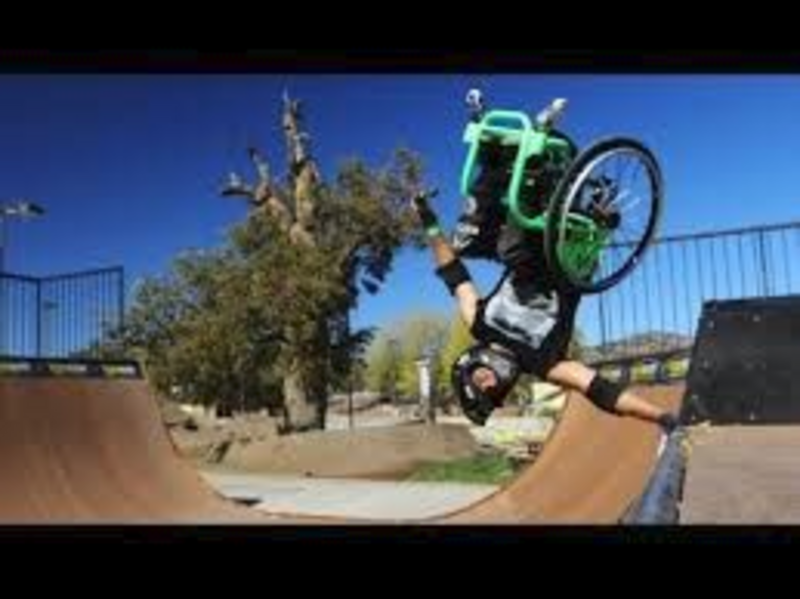
Identity. Everyone has one, but how often do we get to choose how we identify with the world? Sometimes we have no choice. We are born in a certain location, our lineage traces back to Europe, Africa, Asia, etc. We have a specific skin tone or eye color. Sometimes we can choose identity. We subconsciously identify with the groups we are accustomed to surrounding ourselves with or admire. There’s absolutely nothing wrong with that, that’s just human nature. Every once in a great while, we do have the opportunity to choose our own identities, we just don’t realize that opportunity is there.
Specifically, I’m talking about the notion of identifying as being a person who is disabled or being a person with a disability. I’m not talking about legal definitions or status determined by the VA or anything like that. This idea is centered on one’s own mindset.
We live in a world where we cannot avoid labeling. Labels make identifying things easier, faster, more efficient. Labels also divide. Liberals, conservatives, celebrities, professional athletes, vegans, Them, They- all terms which serve to separate “us” from “them”, to categorize a group of people to fit into a bias we all carry towards the people we assign these labels onto. When we label ourselves into smaller groups that we identify with more readily, we defend our “tribes” from others instead of identifying as a greater national or global community, you know, Team People.
We also tend to label ourselves. I used to be a freelance musician working in Southern California, a trombone player. I played in jazz, salsa, orchestral, musical theater groups, anywhere I could. I also subbed as a Disneyland Musician for a good while for the regular full-time musicians in the band. It wasn’t reasonable to have expected us to memorize all the music I could perform at the park, so the subs were expected to mount a thick book of music to a lyre, and the lyre to our instruments to play with the band. This is generally no problem, but it does add significant weight to an instrument and for me, it was awful. I have a Brachial Plexus injury that I incurred at birth, which is basically limited neurological function in my left arm. As with many nerve injuries, some days are better and worse than others. Some days I could hold all the weight without issue, and some days I could barely hold my horn while performing. There were days my arm would literally be shaking as I desperately attempted to hide the obvious. On these days, I just could not perform to my ability. This shook the foundation of my identity. I was a good musician. How could I sound so bad in such a good band in front of so many people? It took me a very long time to mill ideas around in my head until I came up with the following about my self-identity: I am who I am, I do what I do, but I am not what I do.
Since those days, I have dived head-first into competing in Paralympic Cycling, but the lessons I’ve learned as a musician about self-identity have served me well as an athlete. I don’t get depressed when things don’t go how I’d like them to. Don’t get me wrong, when things go wrong, I still get upset, but I don’t dwell on it because I don’t feel personally attacked by a general circumstance.
I’ve been a member of the US Para Cycling National Team for five and a half years, in which it has been my pleasure to be teammates and friends with a lot of difference people from around the country and around the world, many of whom have disabilities that span the full spectrum of what can happen to a person. These people have and live with disabilities, but none of them have a mentality of being disabled.
When you are disabled, it’s hard to see past that. It becomes a focal point in your self-identification and the window through which you see the world. It’s something that was put on your shoulders without your permission.
When you have a disability, you own it. No one asks for a disability, but those who own it can see past it. People living with disabilities just want to be part of the world like everyone else. They want to visit friends and family, go out to eat, go to sporting events, and do everything that the able-bodied population wants to do. We are all people and we all want the same things from life.
I do not accept that my disability defines me as a person, but I cannot escape the fact that I am defined by the choices I’ve had to make because of it. As a kid, I hated my arm, I hated when other people noticed it was smaller, I hated when I couldn’t do normal things the way other people were doing them. As an adult, I own the fact that I have this disability, I look for opportunities to be creative about other ways to do normal things, and I accept that I need to do twice as much work to be half as strong as others.
No one has to agree with my outlook. Those that disagree will just forget about it and move on with life. But if I can help just one person who struggles with identity to choose to look at life through a different filter, then I’m happy I shared my experience.